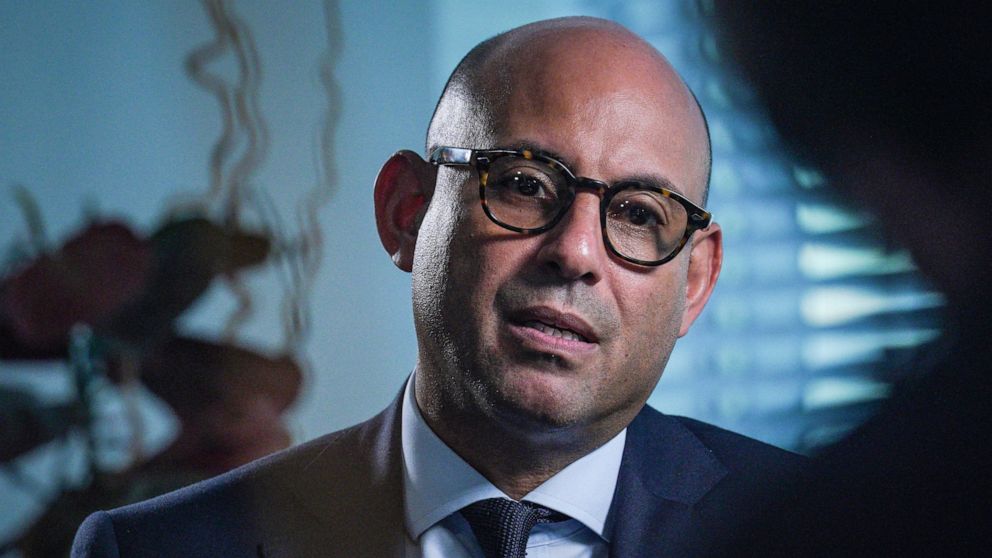UNITED NATIONS — For the United Nations’ new climate chief, the fight is personal.
As a former engineer who says he knows “how to make things work and get things done,” it wasn’t just what Simon Stiell did before he became a top U.N. official, it was where.
Stiell was the environment and climate resilience minister on the small island nation of Grenada until he started his job as the executive secretary of the U.N. Framework Convention on Climate Change a few weeks ago. It’s now his job to make sure the world cuts about half emissions of heat-trapping gases — which are helping trigger unprecedented frequent weather disasters — in just eight years, or as he puts it, two World Cups or two Olympics away.
“Living half my life in a climate-vulnerable nation gives me a deep appreciation,” Stiell, 53, said in an interview with The Associated Press. “I’ve lived through two hurricanes ( Ivan in 2004 and Emily in 2005). I’ve seen my country flattened through hurricanes. I’ve seen sea level rise around my ankles. … And I’ve also been in government finding solutions and responsible as the lead policymaker in how we build a more resilient nation with the limited resources that we have.”
And Grenada, which had losses that doubled its annual gross domestic product, is far from alone. In Pakistan, for example, a third of the country is under water.
“Billions of dollars in damages, lives lost, millions displaced. How do they recover from that?” Stiell asked from the 10th floor of the U.N. headquarters, overlooking the East River. Rich polluting countries will have to pay to help poorer countries that are climate victims, like his, he said.
Polluters paying for what their emissions have done is just as important as cutting what comes out of smokestacks and tailpipes, Stiell said. High-emitting countries reimbursing poorer, vulnerable nations — called “loss and damage” in the world of climate negotiations — is now so important it is one of four pillars of the fight against climate change. The others are cutting emissions, adapting to a warmer and wilder world, and rich nations financially aiding poor nations to develop green energy and adapt.
“Loss and damage has to be addressed,” Stiell said. “It’s a very difficult conversation, but it’s a conversation that has to be had. Positions have softened over the years from nonacceptance and refusal to discuss this to a point now where…
Click Here to Read the Full Original Article at ABC News: US…

